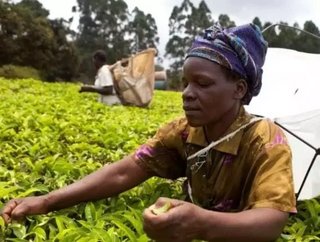Fairtrade Foundation assesses female participation in international supply chains

Follow @SamJermy and @SupplyChainD on Twitter.
As the world prepares to celebrate International Women's Day this Sunday (8 March), Equal Harvest, a new study published by the Fairtrade Foundation, states that enabling more women to join the organisations that grow produce such as bananas, cotton and tea, could benefit businesses and support global development, as well as bringing gains for women.
Although women make up almost half the agricultural workforce in developing countries, they account for just 22 percent of the farmers registered as members of the 1,210 small producer organisations that are certified by Fairtrade.
Legal, social and cultural norms often act as barriers to women’s participation, for example, membership of co-operatives can be dependent on owning land or crops, some agricultural work may be deemed inappropriate for women, and women may be expected to undertake most of the domestic work in the home, giving them less time to participate in producer groups.
Although the Fairtrade Premium is often invested in projects that benefit women, such as access to childcare or training to help them diversify their income, Fairtrade says that increasing the participation of women farmers could boost productivity, improve development outcomes for communities and provide opportunities to launch new products such as the 'Grown By Women' range marketed by Equal Exchange.
A female banana producer in the Dominican Republic said that enabling women to become members of producer organisations is important because "it gives women the right to vote, to participate in decision making, to receive benefits and to live with dignity." A male cotton producer in India said that women should be supported to take up leadership positions because "women are more disciplined and organised and will run these institutions better, whereas men fight amongst themselves and let egos come in the way."
Producer organisations that have taken active steps to increase the participation of women include Kuapa Kokoo, the Ghanaian cocoa co-operative that owns 45 percent of Divine Chocolate which has formed district level gender committees. Almost half of its National Executive Council members, including the current President, are women.
In Morocco, 60 women farmers challenged a long-standing local tradition that a woman’s husband or father was the sole breadwinner, when they established Tighanimine, the first argan oil cooperative. Another small producer group, in India, has used funds from the government to set up an all-women producer organisation in Odisha.
Fairtrade is calling for businesses, governments, NGOs and other agencies to support and incentivise producer organisations to address gender equality. Barbara Crowther, Director of Policy & Public Affairs at the Fairtrade Foundation, said: "Ensuring that women farmers have the same opportunities to participate as their male counterparts will not only increase their income and their influence, but it could also boost the bottom line for businesses and improve development outcomes for communities in some of the world’s poorest countries.”
As a first step, Fairtrade recommends that businesses invest in gender analysis of their supply chains, before developing a gender equality policy and action plan. Businesses are also encouraged to offer financial or technical support to the producer organisations in their supply chain, so that they can implement their own gender equality action plan, which might include a gender committee or women’s directorate.
Recommendations for governments in producer countries include targeting women with programmes such as agronomy training, and ensuring that loans and other support reach people who do not own land. Other governments, donors, agencies and NGOs are encouraged to develop or fund coordinated programmes that address the barriers facing women farmers, and build the ‘business case’ for gender equality.
As part of its own efforts, Fairtrade International recently appointed a gender specialist, Dr Tsitsi Choruma. She said: “While there are already some great examples of Fairtrade producer organisations working to remove the barriers to women’s participation, there is still much more work to be done.
“Achieving gender equality for women farmers will require a concerted and collaborative effort from everyone in the supply chain, so I look forward to working closely with producers and with other partners as we seek to ensure that women get their fair share of the benefits of Fairtrade.”
Fairtrade Africa and the Fairtrade Foundation recently launched a three-year Women In Coffee project with a grant from the Big Lottery Fund, which will transfer coffee bush ownership to women coffee farmers in Kenya, provide them with training on good agricultural practices, and brand their produce as ‘women’s coffee’ for the domestic market. This is expected to give women greater independence, increase yields, improve development outcomes and expand the market for Fairtrade coffee in east Africa.
The Fairtrade Foundation is an independent certification body which licenses the use of the FAIRTRADE Mark on products which meet international Fairtrade standards. This independent consumer label appears on products to show that disadvantaged producers are getting a better deal from trade. Today, more than 1.5 million farmers and workers across more than 74 developing countries benefit from the international Fairtrade system.
Over 5,000 products have been licensed to carry the FAIRTRADE Mark in the UK including coffee, tea, herbal teas, chocolate, cocoa, sugar, bananas and much more besides.
‘Equal Harvest’ will be available at http://www.fairtrade.org.uk/en/what-is-fairtrade/policy-briefings-and-reports for interested parties.






